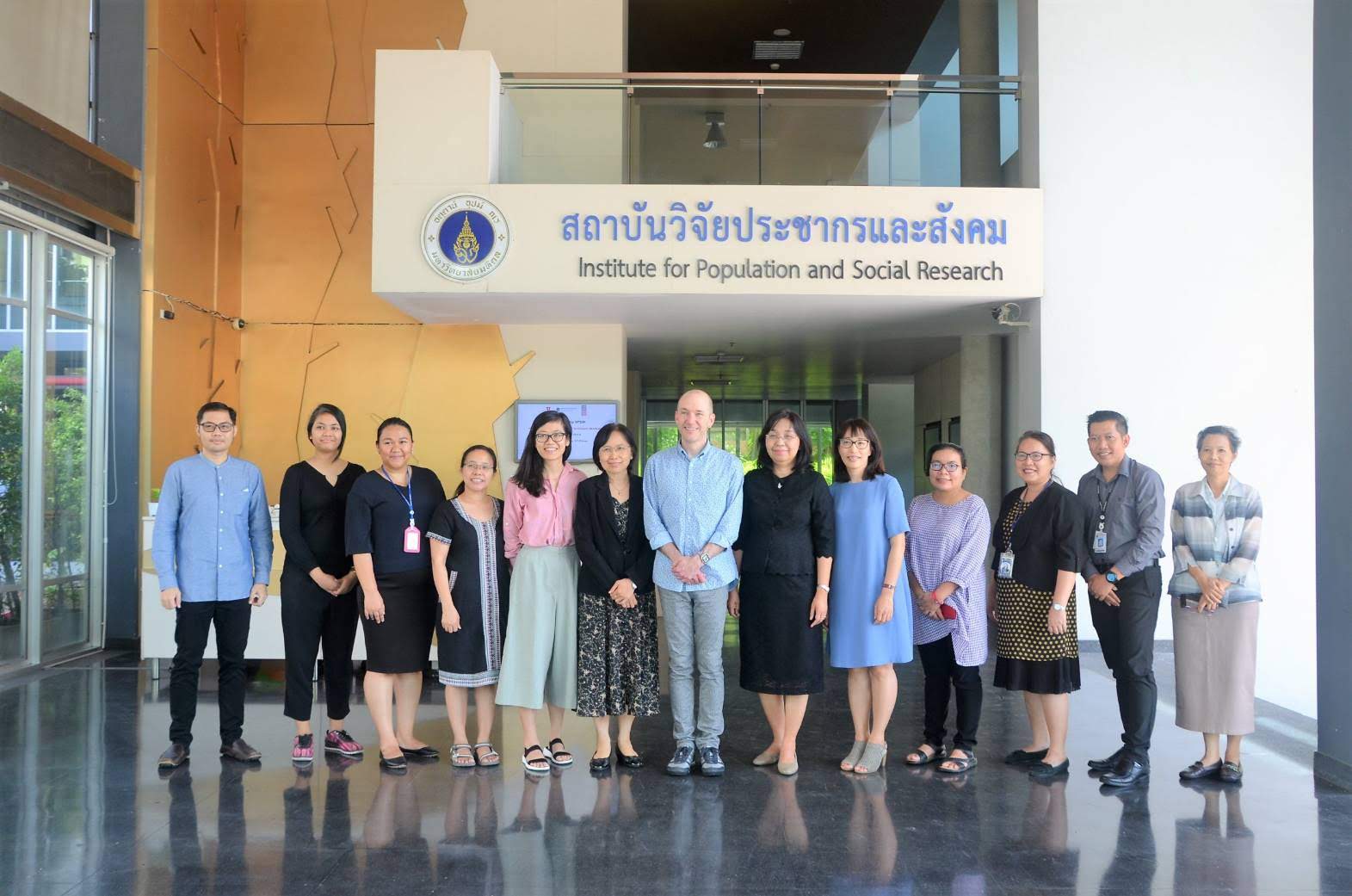Jay Jordan Selected for Prestigious English Language Specialist Project

Jay Jordan and colleagues at IPSR at Mahidol University in 2019. Photo credit: IPSR Staff.
Jay Jordan, Professor of Writing & Rhetoric Studies, has been selected by the U.S. Department of State for a two-month English Language Specialist project working with the Institute for Population and Social Research at Mahidol University and the Faculty of Humanities and Social Sciences at Prince of Songkla University in Thailand. The goal of the project is to increase graduate students' and junior faculty’s grant and publication efficacy in English, given that many social science disciplines communicate internationally in English as a lingua franca, and to create sustainable resources for writing support to integrate into existing graduate curricula. Says Jordan, “I’m really looking forward to learning more about how academic and professional writing is currently supported in Thailand and how it’s taught. This is a great learning opportunity.”
Jordan has worked with colleagues at the Institute for Population and Social Research (IPSR) on two prior occasions, in 2019 and 2023, on capacity-building grant workshops and on writing mentoring workshops for graduate students. “I've had a relationship with IPSR since about 2019 thanks to the Asia Center. They've been interested in developing English-language writing among grad students and junior faculty since at least then,” he explains. “IPSR is a research center that attracts scholars from the broader region, including Cambodia, Laos, Myanmar, Vietnam, Indonesia, and Malaysia—most of the ASEAN [Association of Southeast Asian Nations] countries.”
According to a press release from the U.S. Department of State, the English Language Specialist Program is the “premier opportunity for leaders in the field of teaching English to speakers of other languages (TESOL) to enact meaningful and sustainable changes in the way that English is taught abroad…Since 1991, the English Language Specialist Program has supported in-country, virtual, and mixed projects in which hundreds of TESOL scholars and educators promote English language learning, enhance English teaching capacity, and foster mutual understanding between the U.S. and other countries through cultural exchange.”
Wanda Pillow, Acting Dean of the College of Humanities, says, “We are thrilled that Jay has been selected for this program. His outstanding track record as a scholar and a teacher will be very impactful as he works with colleagues globally to share his expertise.”
Jordan will be working both virtually and in-person with colleagues at both universities to conduct a thorough needs assessment and then designing a workshop for graduate students. The workshops will be conducted both with the IPSR at Mahidol University, which is located in Bangkok towards the center of the country, and at Prince of Songkla University in Pattani, near Thailand’s southern border with Malaysia. The regions have very different demographic characteristics and student populations, but Jordan is looking forward to the task of designing a workshop that responds to both contexts.
When asked about the challenges he expects to encounter, Jordan reflects, “A lot of research has been preoccupied with raising awareness of differences across national boundaries, cultures, and language groups with respect to the use of English language as a whole, with respect to writing and the ways writing is learned and taught and actually done. Even though I’ve been there before and I like to think I’m sensitive to those [cultural] differences, I’m aware that it’s very easy to slip back into routine ways of thinking and learning and teaching about my research and the topics that interest me. I’m definitely expecting that some of my preconceptions will be challenged.”
As the University of Utah moves to become a more globally connected institution, projects like this will add value not just for international partners at other universities, but also for our students and the scholarly community here. Intentionally recruiting a broad variety of international students and faculty brings an implicit degree of beneficial complexity to ensure that all members of the university community are welcomed and included, says Jordan. “I think one of the impacts will be that we can develop not just sensitivities, but more responsiveness to working with a wider variety of faculty and students.”
